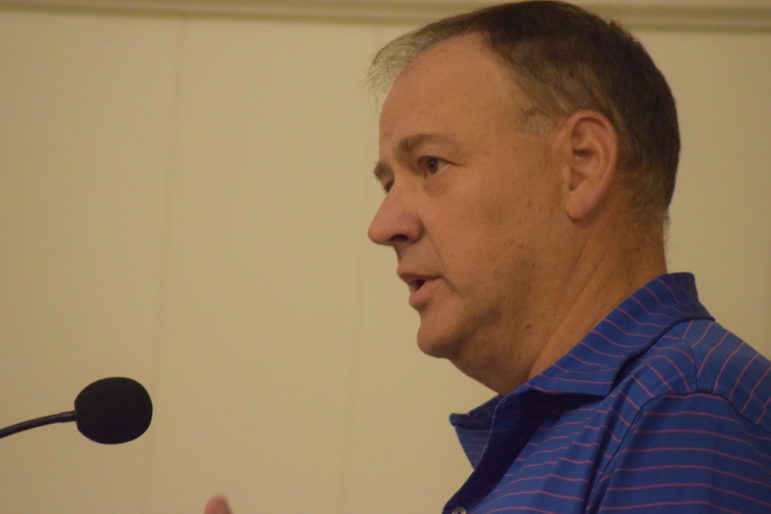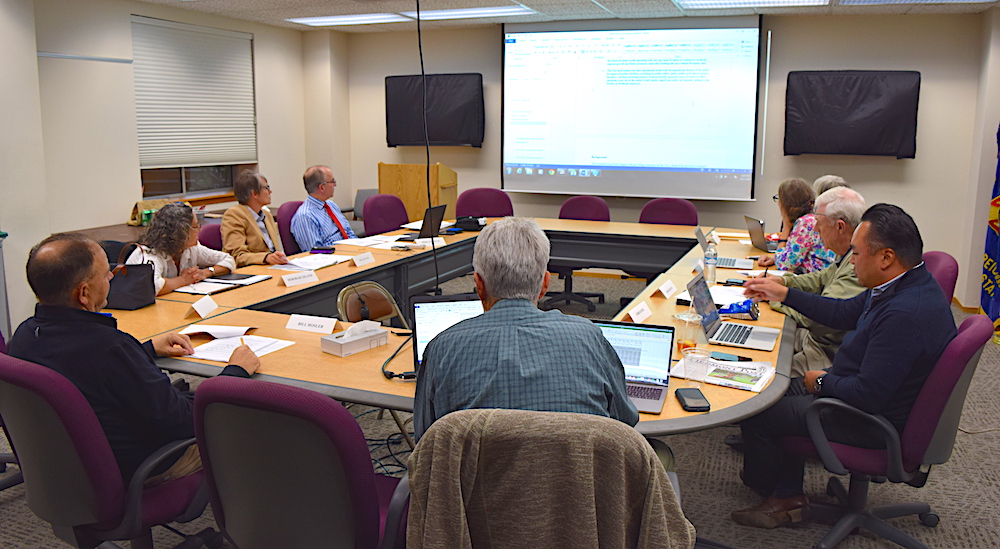(Editor’s note: An earlier headline for this story said the measure would be on the March ballot; however, the city has only been authorized to prepare for a possible measure.)
The City Council on Monday night authorized staff to begin preparing for a March ballot measure for renewing the city’s parcel tax, possibly at a higher rate but likely with the same four-year term as the past several voter-approved parcel tax measure.
No specifics were decided Monday, but the language in any ballot measure must be finalized by the council’s Dec. 2 meeting for it to make the March 2020 primary election ballot.
A ballot measure to extend the city’s municipal services special tax — usually simply referred to as the “parcel tax” — is among five primary recommendations in a new report by the city’s Budget Advisory and Financial Planning Committee. The report also recommended asking voters to approve an eight-year tax, instead of the four-year taxes approved in the past 37 years.
But all four council members present Monday — Vice Mayor Teddy Gray King was absent — said they favored the flexibility of a four-year term over the potential added longer-range planning potential of an eight-year tax. Councilwoman Betsy Smegal Andersen and others said the four-year “report card” offered more accountability, and the opportunity to make changes sooner if economic conditions or other factors warranted.
“I’d be reticent to commit to any certain tax rate for eight years,” Andersen said.
But council members were quick to agree with the budget committee’s findings that the City of Piedmont’s financial future relies, at the very least, on renewal of the existing parcel tax, likely with other additional revenue sources.
To fully fund the city’s Facilities Maintenance Fund, annual funding (from the city’s general fund, as fed by the parcel tax), annual funding would need to be increased from $550,000 to $750,000, and maintained at that level, the budget committee report says.
The city’s Facilities Maintenance Fund is funded out of parcel tax revenue, which is expected to bring in approximately $2,354,000 in 2019-2020.
That existing parcel tax, the municipal services special tax, is assessed based on individual lot size. For homeowners, that annual tax ranges from $535 for a home up to 4,999 square feet to $903 for homes of more than 20,000 square feet

Bill Hosler, chairman of the Budget Advisory and Financial Planning Committee, on Monday night praised the city’s long-term financial plan, including its taking on of the pension/unfunded liabilities issue, which either already has presented, or soon will present, serious fiscal issues in most California cities.
“But we need more work on the roadways, the sidewalks — there’s more work to be done,” Hosler told the council. And as for deferred maintenance, Hosler said, there’s a “giant pile” of it in Piedmont.
That budget committee report (http://www.ci.piedmont.ca.us/common/pages/DisplayFile.aspx?itemId=16086868) notes that, over the past 20 years, the city has underfunded facilities maintenance, streets and sidewalks, and although steps have been taken to begin to address this, the City likely does not have the long-term revenues to fully maintain facilities and streets, much less upgrade them to prior levels.
The current municipal services special tax expires on June 30, 2021.
Another possible source of added revenue, the report says, is increasing the city’s real property transfer tax, a one-time tax when a property changes ownership, based on square footage. The committee’s report states that “whereas property tax rates in Piedmont are comparable to or higher than neighboring cities, the transfer tax is lower than that of Oakland and Berkeley, presenting an opportunity to increase city revenue.”
But Councilwoman Jen Cavanaugh said the parcel tax is not only a more dependable revenue source than the transfer tax, “but it spreads the burden out among all homeowners.”
The committee’s report also says the city should continue to develop and monitor its current long-term financial model, which the committee considers “to be the bedrock of the city’s long-term financial planning.” The city, the report says, should annually review and mode retiree healthcare projections, OPEB (other post-employment benefits), Police and Fire Pension Fund funding, long-term projections of CalPERS retirement for long-term viability, its housing inventory and conversions of houses to rental properties — all to understand trends which may affect Piedmont’s future tax revenues.
Andersen said of the report, “This should be required reading for all (Piedmont) residents.”
The council will likely be tackling various of a parcel tax ballot over its next few meetings.
Monday’s council meeting was adjourned in the memory of Zachary Crombie Presberg, a 22-year-old graduate of Piedmont High School killed in a Sept. 23 car crash in Iowa while working for presidential candidate Elizabeth Warren’s campaign in that state.
Reach Sam Richards at sam.richards4344@gmail.com
